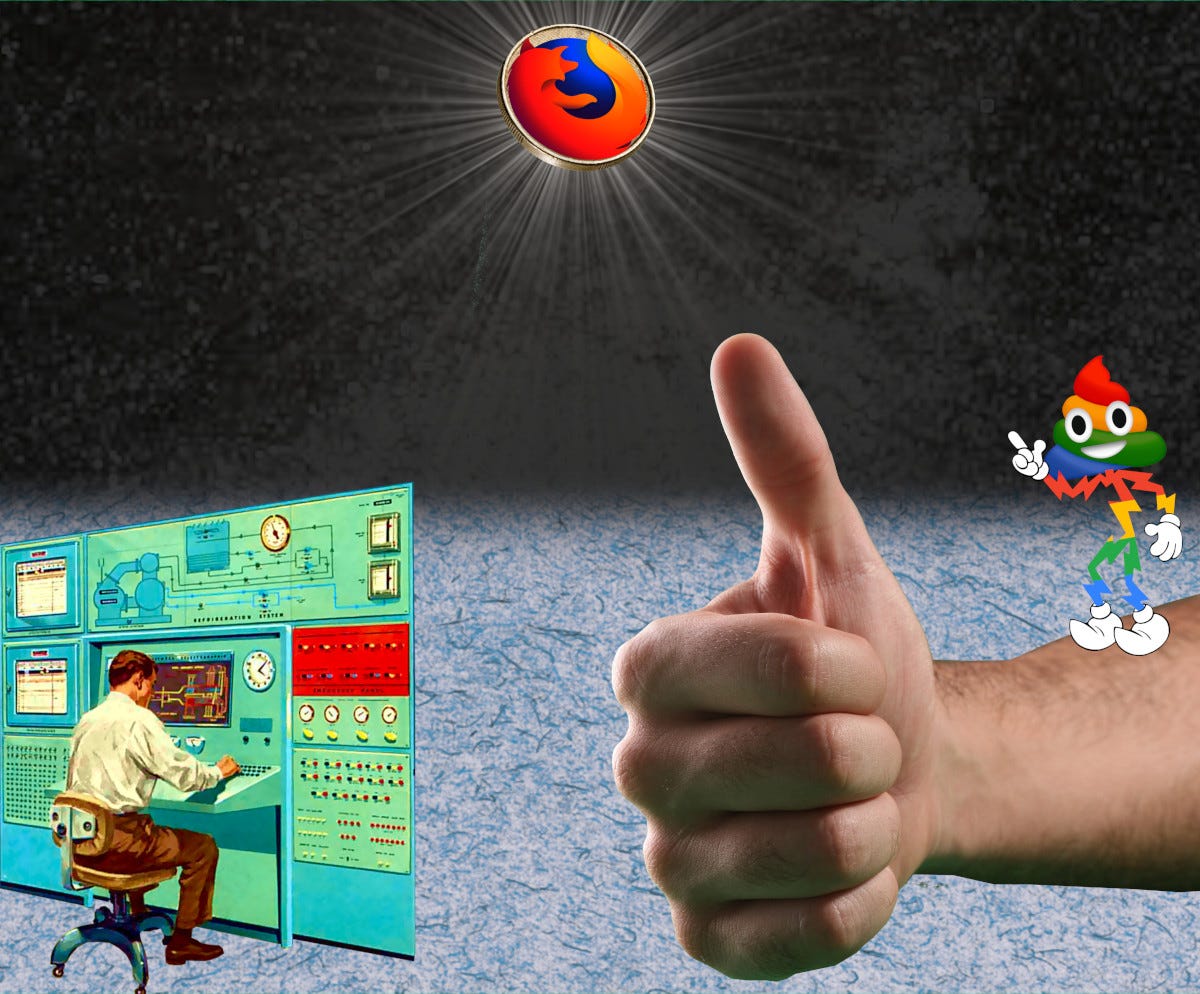The paradox of choice screens

🌈 Abstract
The article discusses the upcoming antitrust case against Google, the potential remedies that may be ordered by the court, and the implications for the browser market. It also touches on the author's upcoming talks at Burning Man and their thoughts on Mozilla's future direction.
🙋 Q&A
[01] Upcoming Talks at Burning Man
1. What talks is the author giving at Burning Man?
- On Tuesday, August 27th at 1PM, the author is giving a talk called "DISENSHITTIFY OR DIE!" at Palenque Norte (7&E).
- On Wednesday, August 28th at Noon, the author is doing a "Talking Caterpillar" Q&A at Liminal Labs (830&C).
[02] Google Antitrust Case
1. What is the status of the DOJ's antitrust case against Google?
- The DOJ has won its case, and Google has been convicted as a monopolist.
- The case is now moving into the "remedy" phase, where the court will determine what actions Google must take to address its illegal monopoly power.
2. What potential remedies could the court order?
- The court could order Google to break up by selling off parts of its business, such as Android, its ad-tech stack, and Chrome.
- Even if the court orders significant remedies, Google is expected to appeal, which could drag out the case for years.
3. How could a lengthy appeals process benefit Google?
- A years-long appeal process could transform Google's culture, as the company fights for its life in the appeals court.
- During this time, Google may be less likely to engage in practices that harm competition, as it tries to avoid further angering antitrust enforcers.
[03] Browser Dominance and Choice Screens
1. What are the key issues with browser dominance?
- The world has two extremely dominant browsers, Safari and Chrome, each owned by an operating system vendor that pre-installs their browser as the default.
- Defaults matter greatly, as people rarely change them, even though they may claim to want more choice.
2. What are "choice screens" and how effective have they been?
- Choice screens are designed to encourage users to try out different browsers and break the inertia of the default browsers.
- Past experiences with choice screens, such as Google's 2019 Android setup choice screen and Microsoft's BrowserChoice.eu, have had mixed results, with many users still sticking with the default browser.
3. What does the Mozilla Research study suggest about effective choice screen design?
- Users report liking choice screens during device setup, but not when they interrupt browser usage.
- The order in which browsers are presented has a larger effect than the number of choices or amount of information provided.
- To be effective, a choice screen should present Chrome as one of the lower options, not in the top four choices.
[04] Mozilla's Future Direction
1. What challenges has Mozilla faced in recent years?
- Mozilla has made various "unforced errors" by compromising user privacy and interests in an attempt to balance the demands of monopolistic web companies and its users.
- These compromises have alienated Mozilla's core technical user base, leading to a loss of users and leverage over the corporations making demands.
2. What is the author's perspective on Mozilla's future?
- The author is cautiously hopeful about Mozilla's future under new leadership, as long as the organization focuses on being a principled "user agent" that prioritizes its users' interests above all else.
- Securing alternative revenue sources, such as from the EU or foundations, could help Mozilla reduce its dependence on Google and make it easier to stand up for its users' interests.